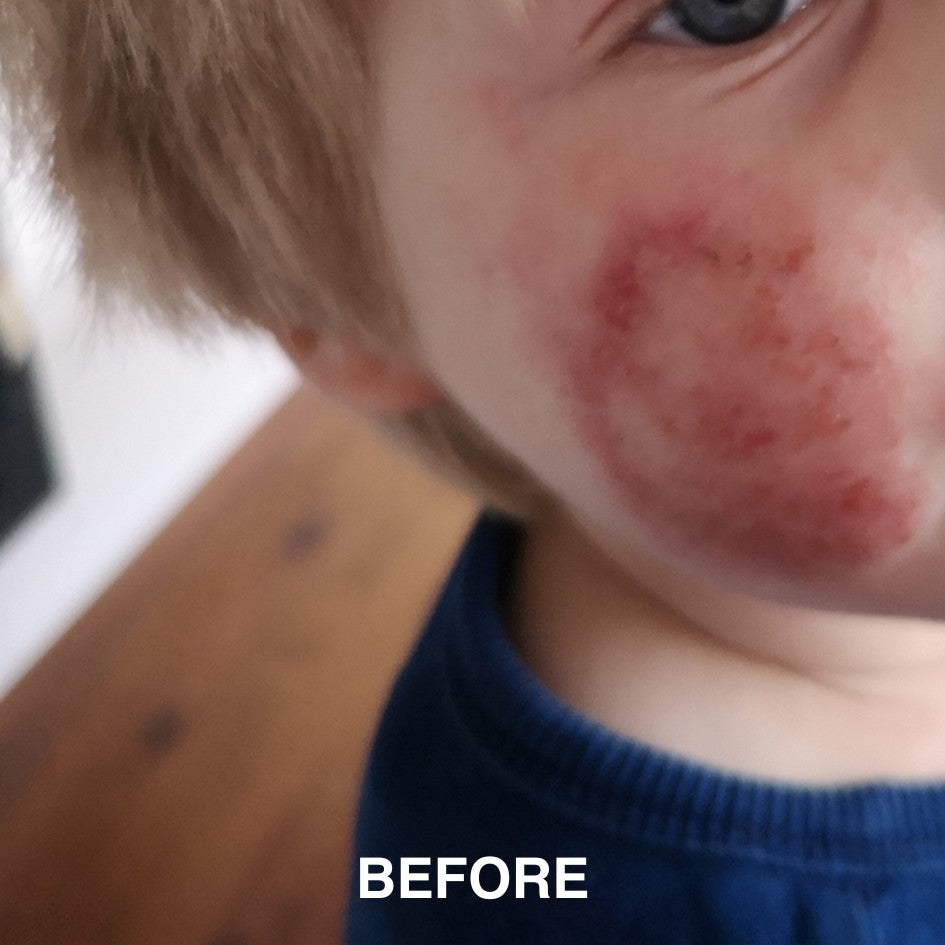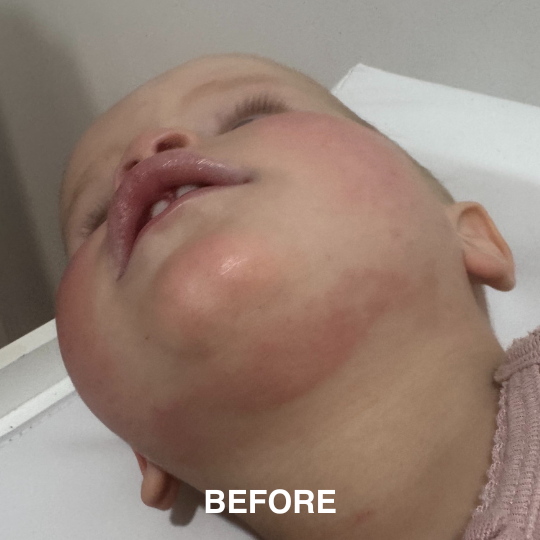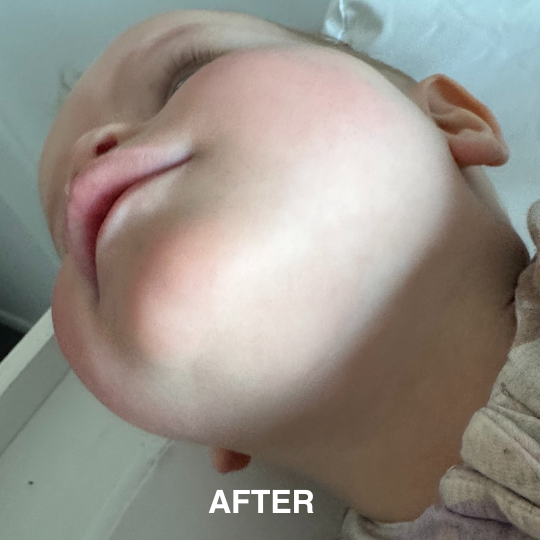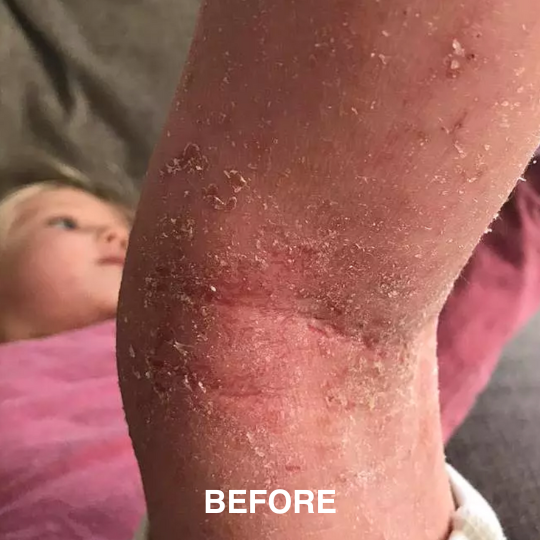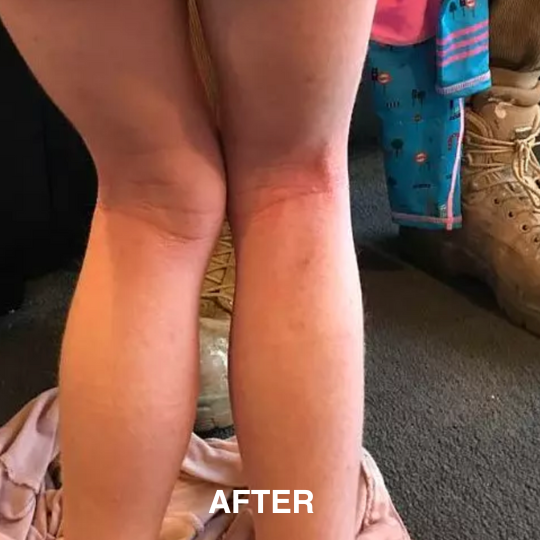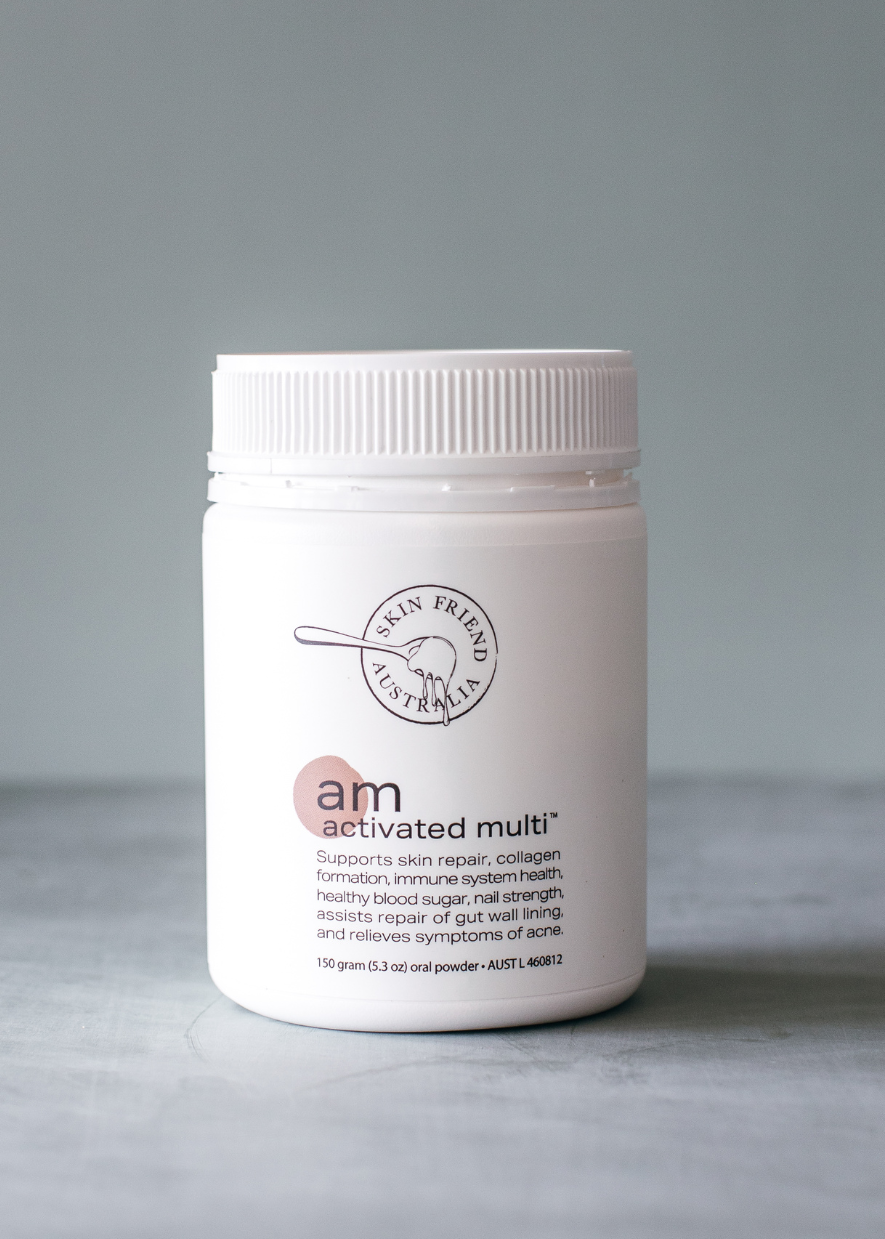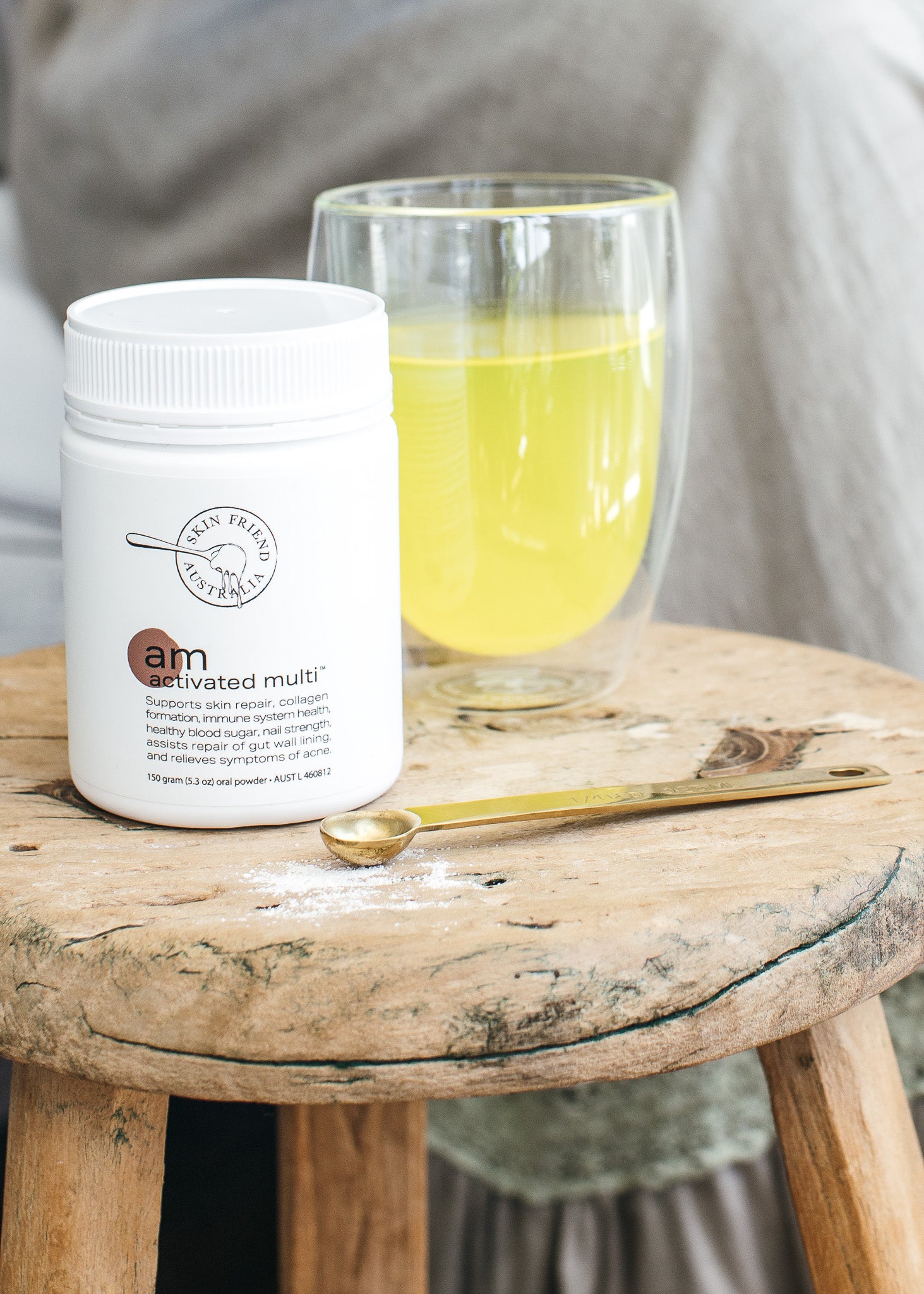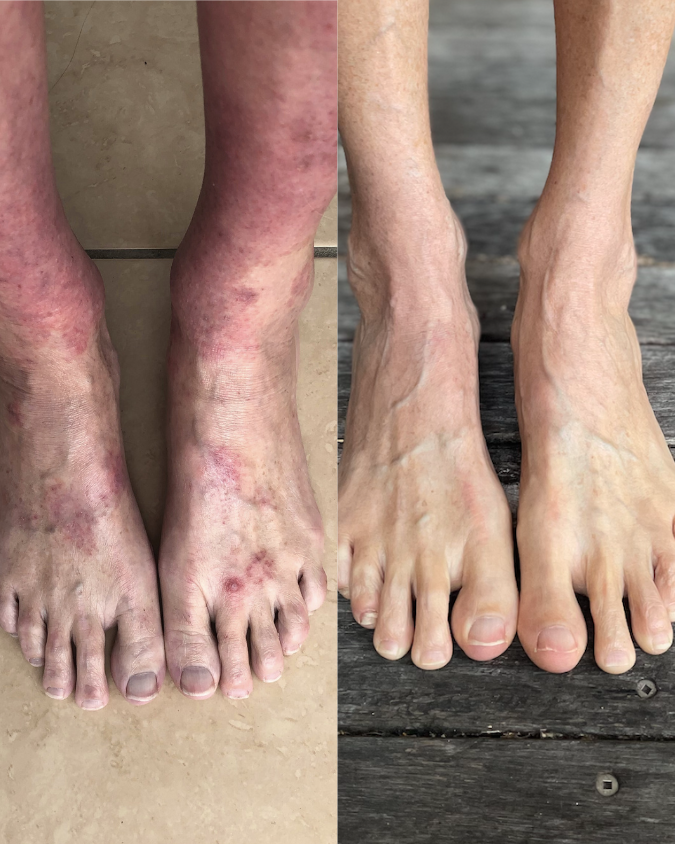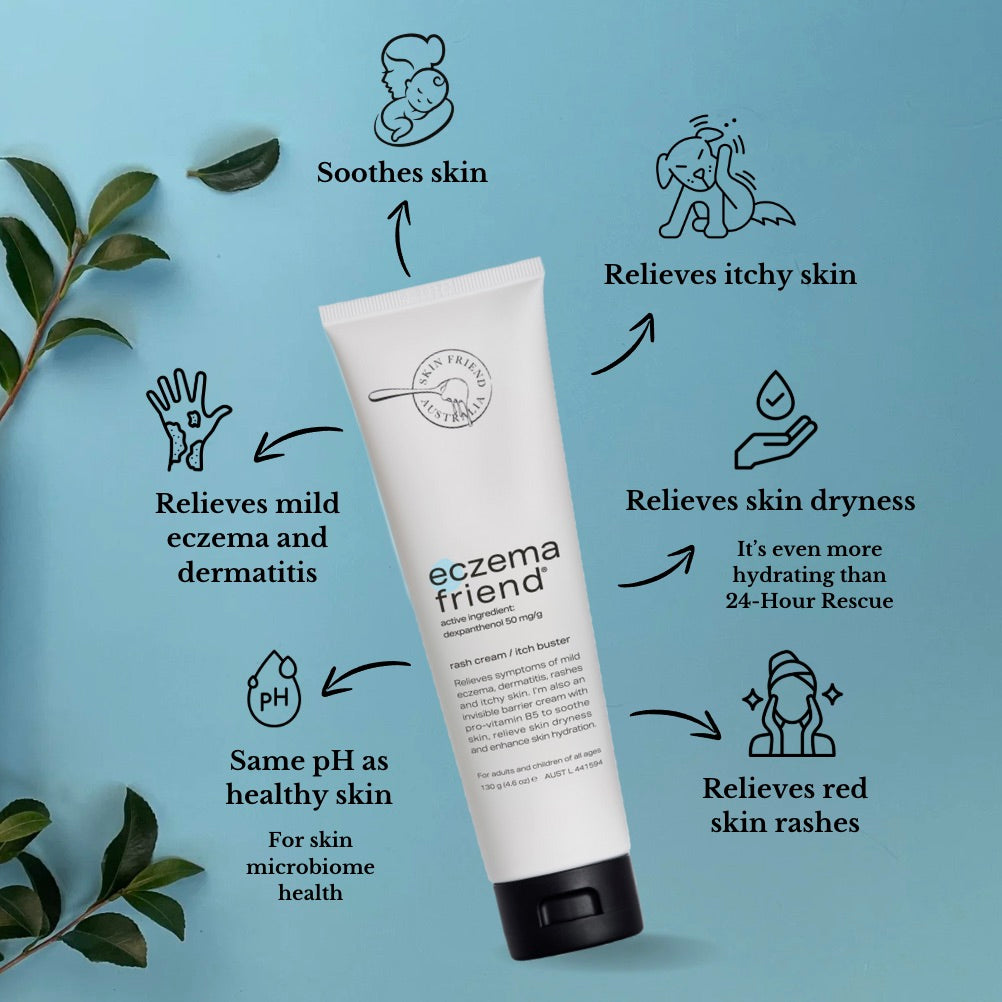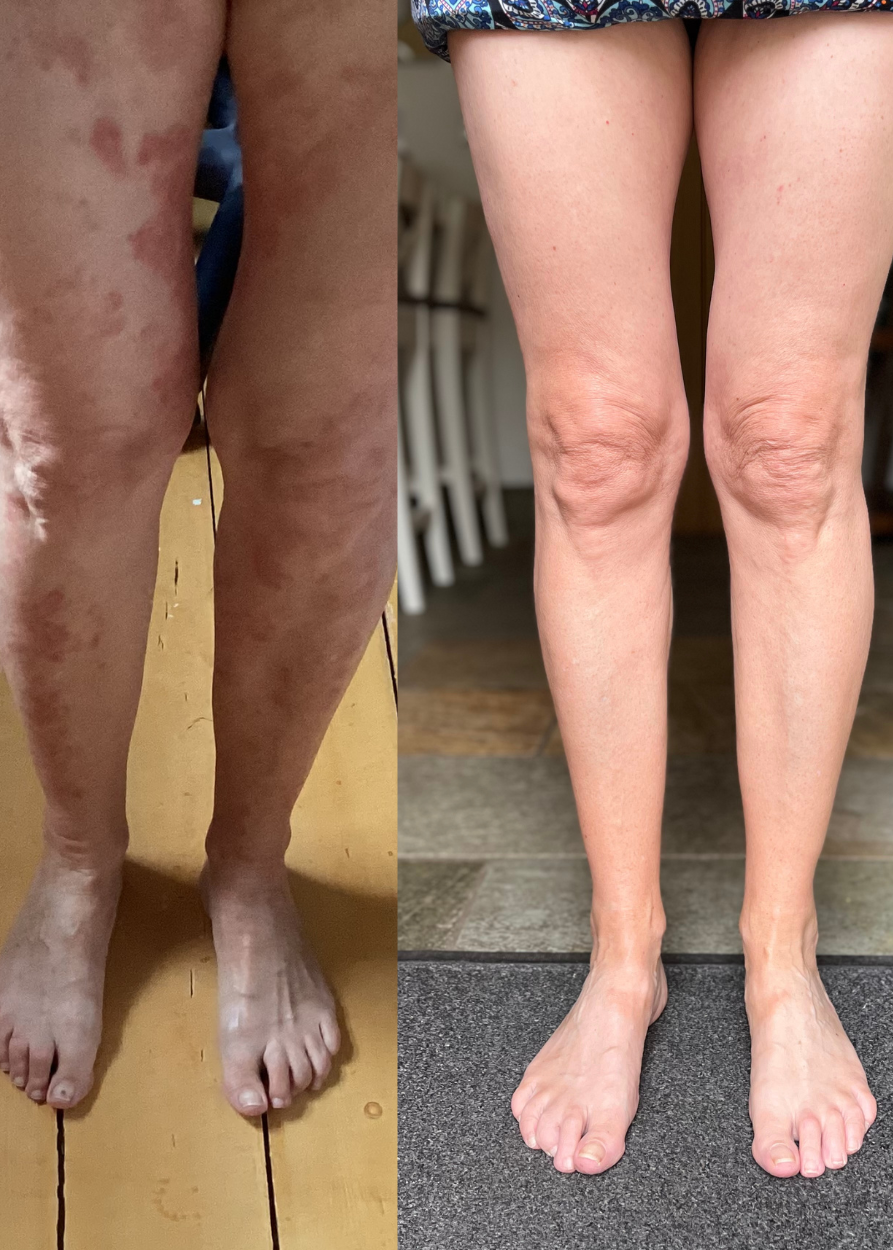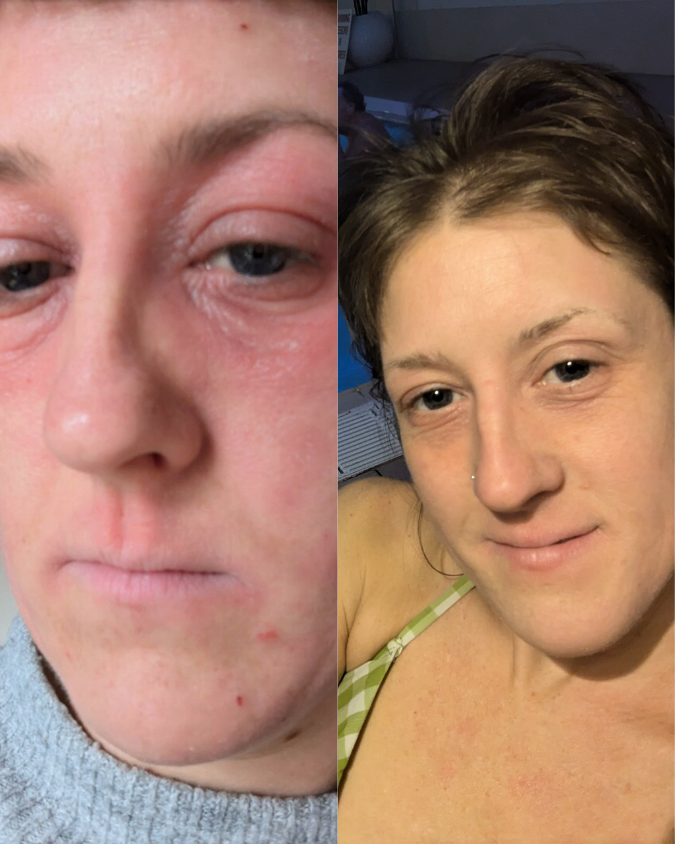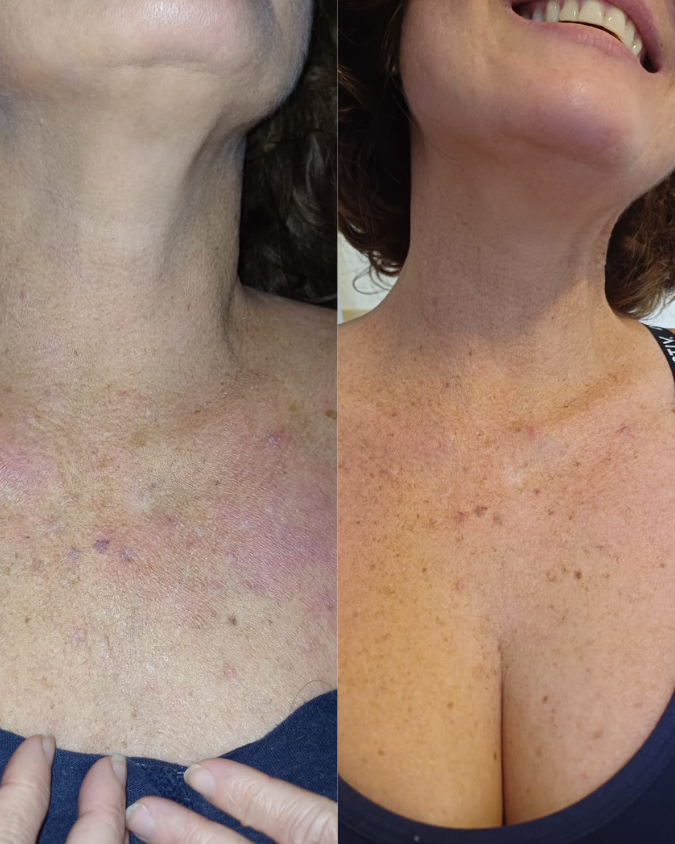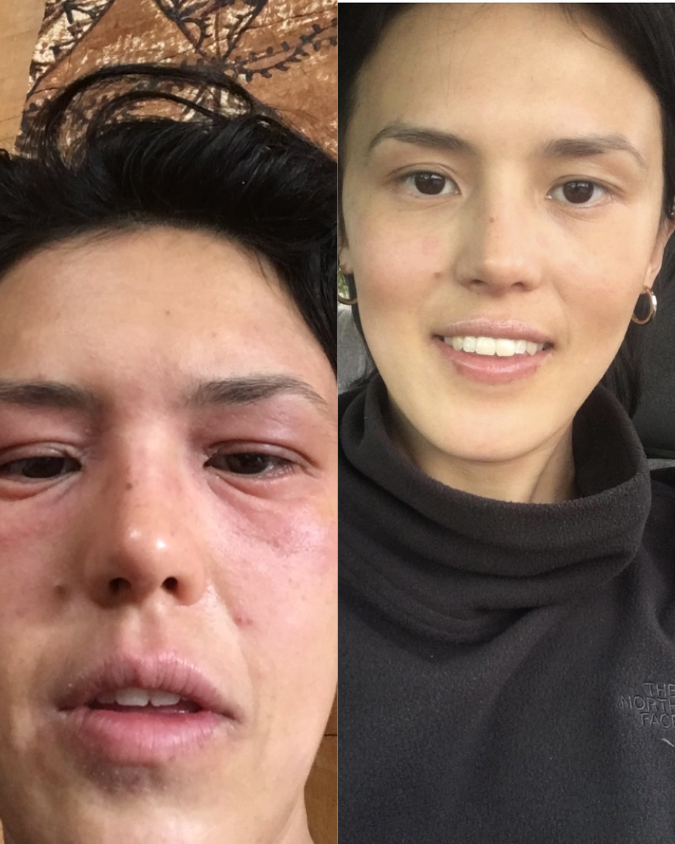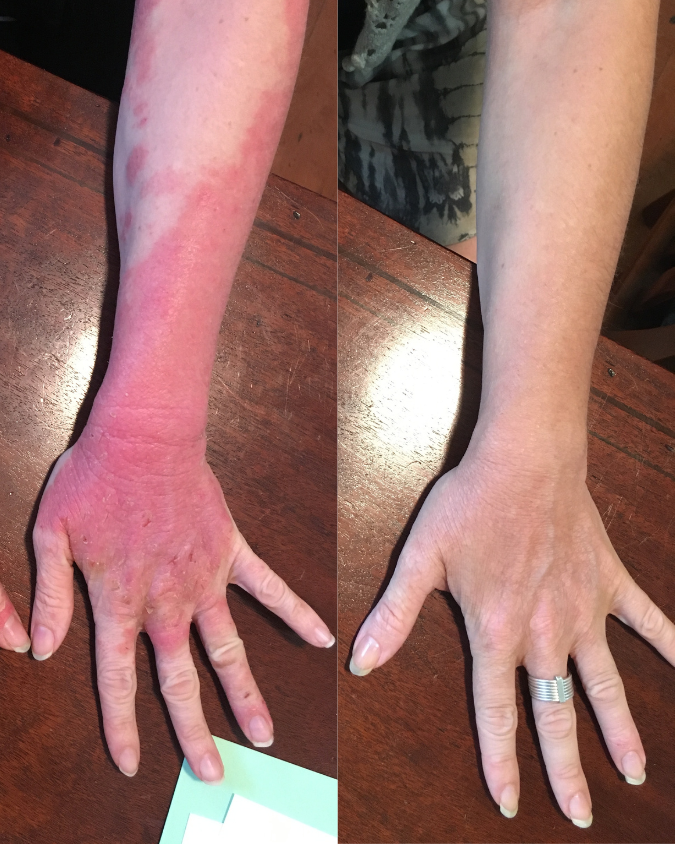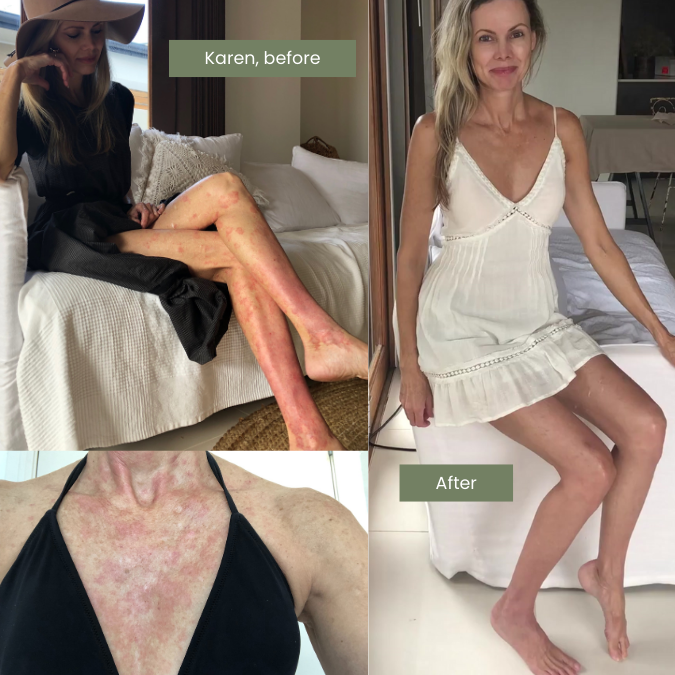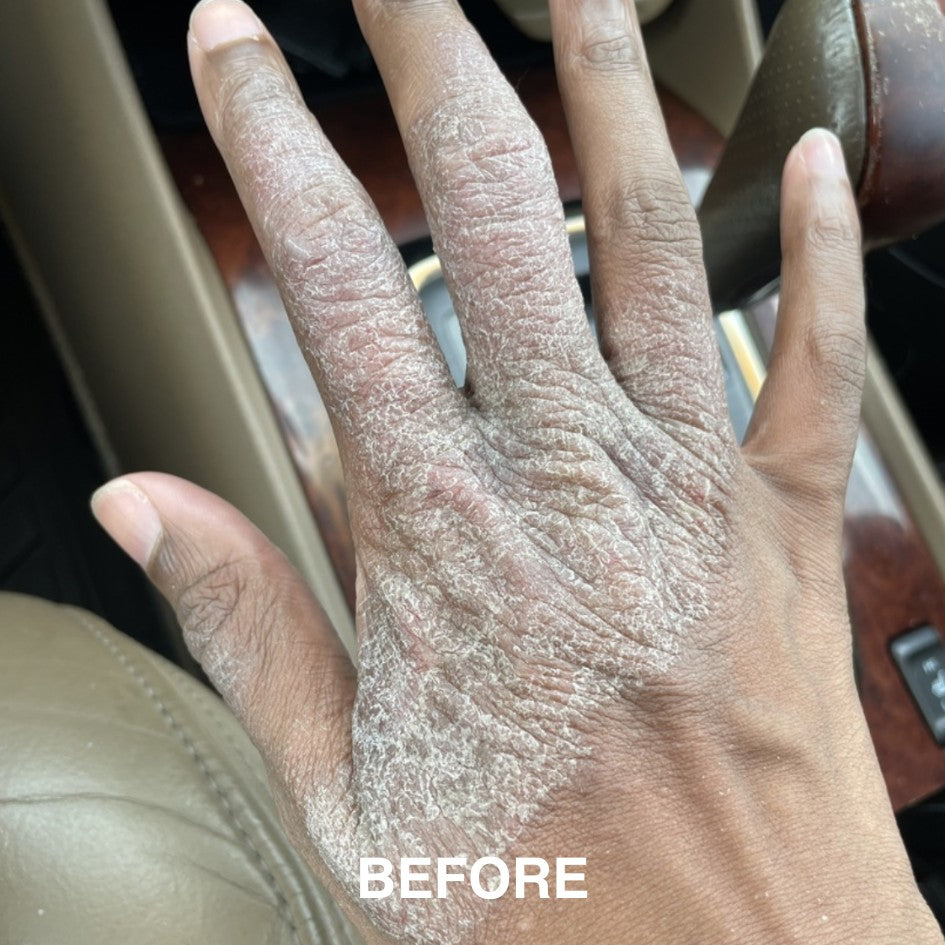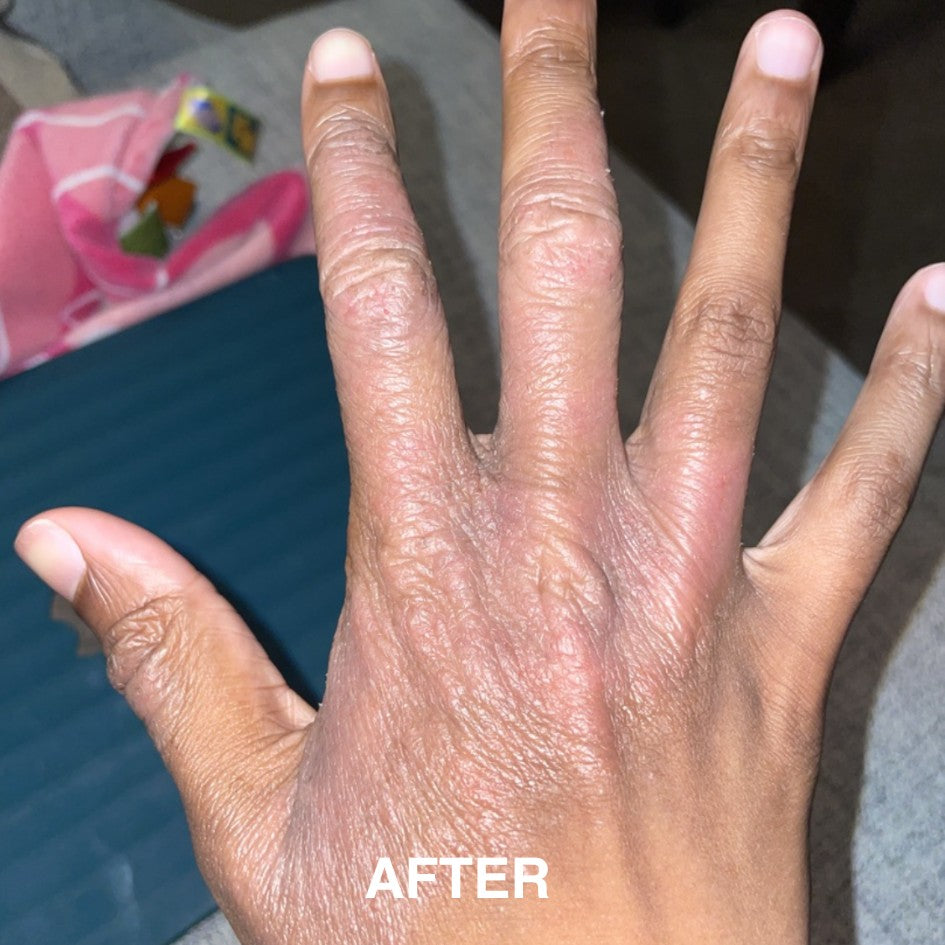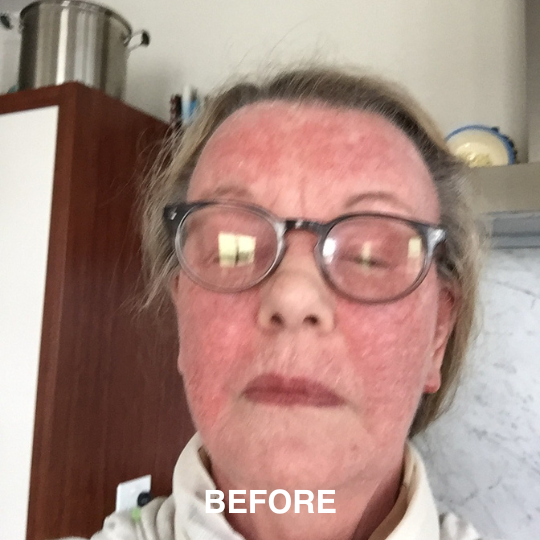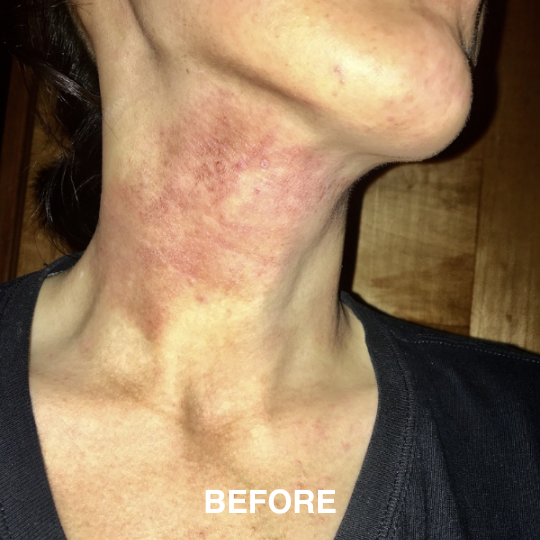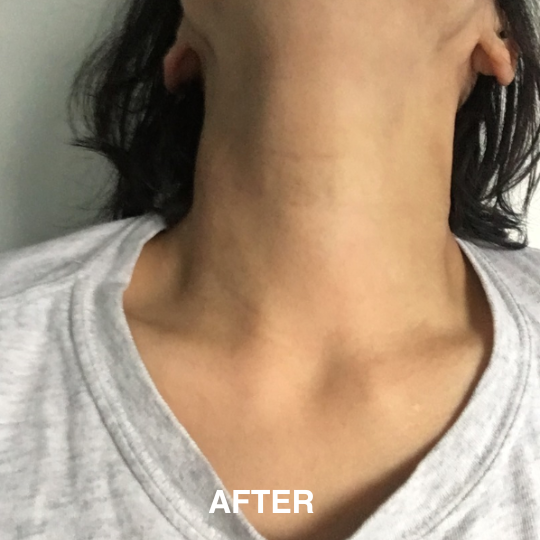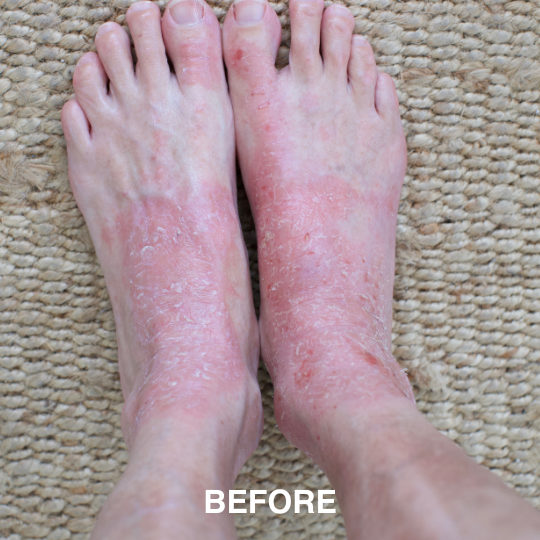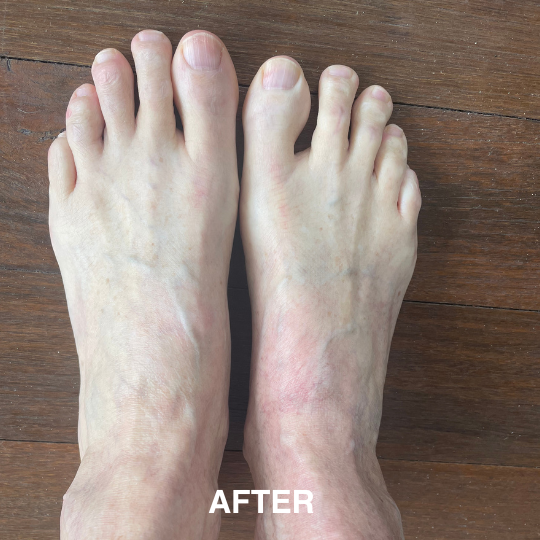When many of us think of eczema, we think of it as a childhood condition.
But can you develop eczema later in life, and if so, how can it be treated? In this blog we discuss the causes of adult eczema and how to effectively treat it. This could save you years of itchy, inflamed skin.
Causes of Adult or Elderly Eczema
It can be hard to diagnose exactly how eczema develops later in life. Still, it can be linked to having drier skin as we age, going through menopause, a difficult period of stress, or after pregnancy.
Let's unpack the types of eczema that can affect older people, and how to treat it naturally, and based on scientific research.
Hormonal Eczema
During pregnancy, your body ramps up estrogen production and adjusts your immune system to safeguard your baby. But can you develop eczema after pregnancy? After giving birth, these changes abruptly reverse, potentially triggering or worsening eczema.
Another post-pregnancy factor is stress. When you're under pressure, your body produces cortisol, which can overwhelm your immune system and trigger an inflammatory response.
Asteatotic Eczema
Asteatotic eczema, common in older adults, often affects the shins but can also appear on the thighs, arms, stomach, and back. It is more likely to develop in warm, dry environments, or during winter. Symptoms include very dry, rough, scaly skin resembling cracked crazy paving or a dried riverbed (PubMed).
Glycine Deficiency and Eczema
Low glycine receptor levels in the skin are linked to psoriasis and eczema later in life (Booken, 2008)—and may contribute to inflammation and skin barrier issues. Research shows that glutathione levels decline as you age, and glycine helps restore glutathione, which then may have an anti-ageing effect. Glycine increases the lifespan of animals, promotes restorative sleep, and it boosts collagen synthesis and muscle regeneration (Johnson, 2023), so it can be helpful to supplement with glycine later in life, especially if you have eczema.
- Supplementing with glycine can help restore skin health by reducing inflammation, improving sleep quality, and supporting collagen production and skin barrier repair (Booken, 2008).
A daily dose of 2000 mg (2 grams) of glycine, along with collagen supporting nutrients including 15 mg zinc, vitamin C and silica from our AM Activated Multi supports collagen production and skin repair so it is ideal for people with eczema later in life. Click to buy AM Activated Multi here.
Calcium Deficiency Linked to Eczema
Calcium is essential for a healthy skin barrier, as it helps skin cells (keratinocytes) repair wounds and form a strong barrier to prevent inflammation (PubMed).
Studies show calcium deficiency is linked to childhood eczema, with affected kids consuming less calcium (Hildebrand, 2019). If your calcium levels are low—shop Skin Friend PM to create a healthy skin barrier, because Skin Friend PM contains calcium along with magnesium and vitamin K2 to support proper calcium absorption, so it’s more effective than taking regular calcium alone. Click here to shop Skin Friend PM.
Vitamin B2
Vitamin B2 deficiency can lead to skin issues like red rashes, peeling, and sores, sometimes resembling eczema or severe malnutrition (PubMed). Chronic deficiency often causes symptoms around the mouth, such as cracked lips, bleeding sores, and changes in tongue appearance (smooth, swollen, deep red) (PubMed). These deficiencies are linked to perioral dermatitis and cheilosis, which are common oral eczema signs that can occur later in life.
Zinc
Zinc is a vital trace mineral involved in over 300 enzymatic reactions, including those critical for skin health and repair. Low zinc levels are often linked to impaired immune system function, poor wound repair and skin lesions like acne, hidradenitis suppurativa, rosacea, dermatitis, seborrheic dermatitis, psoriasis, and eczema (Zou, 2023). Studies show zinc supplementation can improve wound healing, and decrease inflammatory markers in the elderly, so supplementation, especially in those with a deficiency, can support skin repair later in life.
Vitamin B3 (Nicotinamide)
Nicotinamide, a form of vitamin B3, is an essential vitamin that decreases as we age (Shen, 2023). Vitamin B3 deficiency causes dermatitis, diarrhoea and dementia (collectively known as pellagra), and can appear like rosacea due to capillary dilation and thickened skin (PubMed). Nicotinamide shows promise as a treatment for ageing skin, and skin problems such as rosacea, acne, blistering skin disorders, and eczema (Chen, 2014; Forbat, 2017). Unlike niacin, the more common form of B3, nicotinamide doesn’t cause skin flushing, itching, or redness, making it a gentler option. It also helps protect against dry skin by reducing water loss, a common issue in elderly eczema.
Vitamin B5
Vitamin B5 (pantothenic acid) is essential for maintaining a healthy skin barrier function and skin hydration (Kobayashi, 2011). Together, with calcium, vitamin B5 regulates skin cell function and helps rebuild the skin’s protective barrier, which is often damaged in eczema.
Dealing with Eczema Late In Life
So, it is possible to develop eczema later in life due to factors like hormonal changes, dry skin, nutrient deficiencies, or life transitions such as menopause or pregnancy.
Understanding the causes of eczema, including asteatotic eczema or deficiencies in key nutrients like glycine, calcium, zinc, and vitamin B2, vitamin B3, and vitamin B5, can help improve symptoms and skin health. By addressing these underlying issues and supporting the skin barrier with the right nutrients, you can take control of eczema and work towards healthier, calmer skin at any age.
Get the skin supplements for eczema designed by a health practitioner
While it can be expensive buying each nutrient separately, you can improve your skin health and save money by buying the nutrients in a multi supplement, such as AM Activated Multi. AM contains active doses of glycine, zinc, and vitamins B2, B3, and B5, to support skin repair, collagen formation, hair growth and energy levels, and repair your gut wall lining.
Click here to shop AM Activated Multi.
Click for references
Specht S, Persaud Y. (2023). Asteatotic Eczema. In: StatPearls [Internet]. https://www.ncbi.nlm.nih.gov/books/NBK549807/
Johnson TL, Cuellar A. (2023). Glycine and aging: Evidence and mechanisms. Ageing Res Rev. 87:101922. PubMed | DOI
Inoue K, Takei K, Denda M. (2015). Functional glycine receptor in cultured human keratinocytes. Exp Dermatol. 24(4):307–309. PubMed
Inagawa K, et al. (2006). Subjective effects of glycine ingestion before bedtime on sleep quality. Sleep Biol Rhythms. 4:75–77. DOI: 10.1111/j.1479-8425.2006.00193.x
Bikle DD, Xie Z, Tu CL. (2012). Calcium regulation of keratinocyte differentiation. Expert Rev Endocrinol Metab. 7(4):461–472. PubMed
Hildebrand H, et al. (2019). Calcium Intake in Children with Eczema and/or Food Allergy. Nutrients. 11(12):3039. PubMed
Mahabadi N, Bhusal A, Banks SW. (2023). Riboflavin Deficiency. In: StatPearls [Internet]. https://www.ncbi.nlm.nih.gov/books/NBK470460/
Sanvictores T, Chauhan S. (2024). Vitamin B5 (Pantothenic Acid). In: StatPearls [Internet]. https://www.ncbi.nlm.nih.gov/books/NBK563233/
Redzic S, Hashmi MF, Gupta V. (2023). Niacin Deficiency. In: StatPearls [Internet]. https://www.ncbi.nlm.nih.gov/books/NBK557728/
Chen AC, Damian DL. (2014). Nicotinamide and the skin. Australas J Dermatol. 55(3):169–175. PubMed
Lappas M, Permezel M. (2011). The anti-inflammatory and antioxidative effects of nicotinamide. J Nutr Biochem. 22(12):1195–1201. PubMed
Chen AC, et al. (2016). Oral nicotinamide reduces transepidermal water loss. Br J Dermatol. 175(6):1363–1365. DOI
Tanno O, et al. (2000). Nicotinamide increases biosynthesis of ceramides. Br J Dermatol. 143(3):524–531. PubMed
Cho YS, et al. (2022). Use of Dexpanthenol for Atopic Dermatitis. J Clin Med. 11(14):3943. PMC
Bhutta BS, Hafsi W. (2023). Cheilitis. In: StatPearls [Internet]. https://www.ncbi.nlm.nih.gov/books/NBK470592/
Zou P, et al. (2023). Trace element zinc and skin disorders. Front Med (Lausanne). 9:1093868. PMC
Yang M, et al. (2014). Pantothenic Acid-based supplement in facial acne. Dermatol Ther (Heidelb). 4(1):93–101. PMC
Kobayashi D, et al. (2011). Pantothenic Acid Deficiency & Keratinocyte Proliferation. J Pharmacol Sci. 115(2):230–234. PubMed



